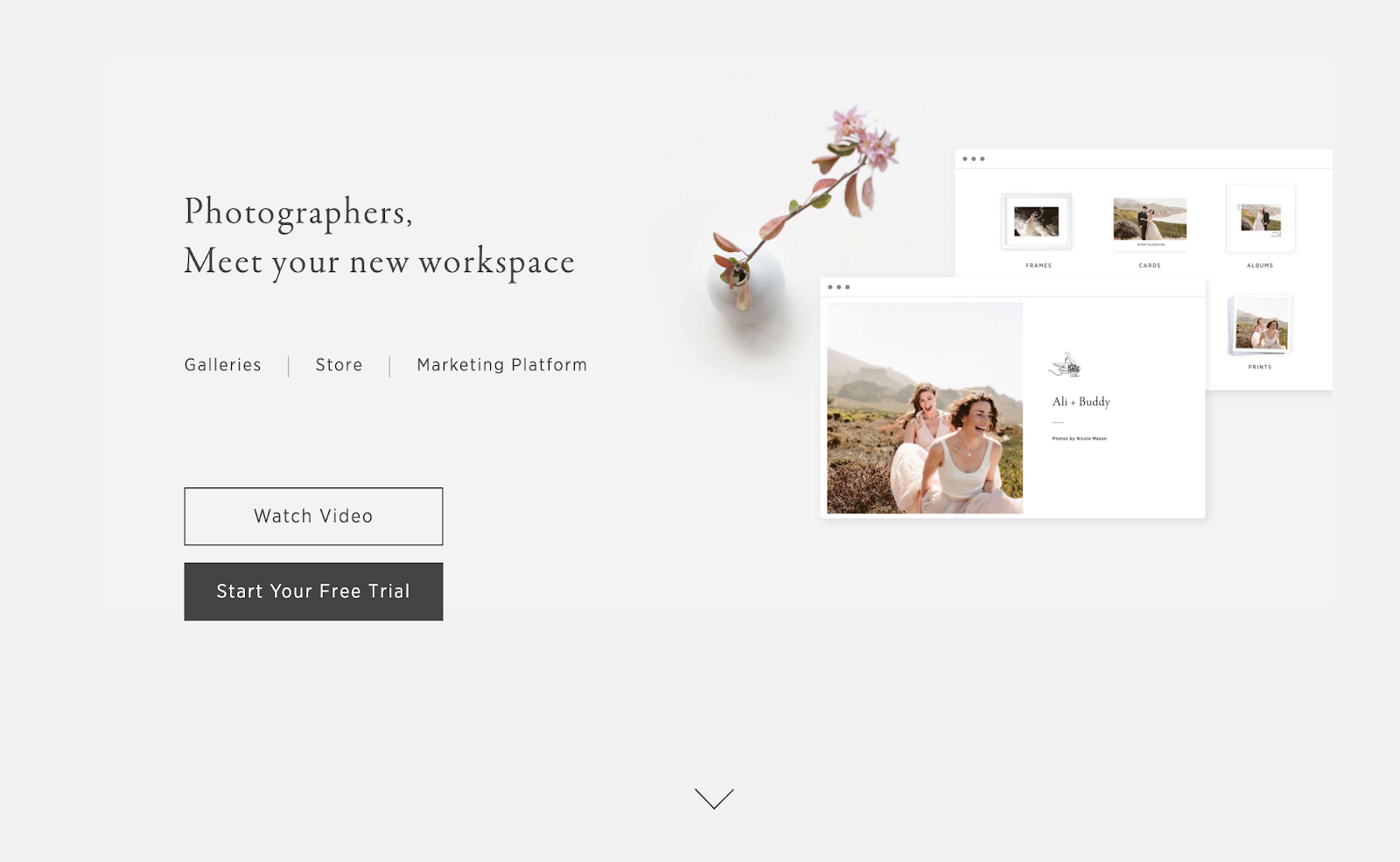As 2020 comes to a close (phew!) — it’s time to start thinking about the year ahead and goal setting for the future.
We all know goals are the currency for change in business — but how can you actually achieve them? And what makes a goal worth chasing?
Well, in this article, we’re going to answer those questions and more as we break down how we wedding photographers can set goals, achieve them and boost our businesses as a result.
So, let’s get started 💪🏼
First, why set goals in the first place?
Put simply, setting goals is a great way of breaking bad habits, focusing the mind, and having a target to work towards.
We all know how it is — we set ourselves ambitious New Year’s resolutions, commit to them for a week or two, and then let them slip from our minds as we focus on the day-to-day challenges of running our businesses.
With a realistic and achievable goal in place though, this shouldn’t be the case.
While a New Year’s resolution might be something quite broad (like aiming to ‘enjoy’ work more) — a goal is far more objective and rooted in reality.
So, instead of simply ‘wanting to enjoy work more’… a goal will answer the hows and whys:
- Why do you want to enjoy work more? 🤔
- Why is that so important to you? 🙋♀️
- How are you going to achieve that? 🏆
- How will you have to change your approach? 📈
As Napoleon Hill put so eloquently — “A goal is a dream with a deadline.”
It’s all well and good dreaming of a better year ahead, but without serious effort and commitment, that change just isn’t going to come.
But don’t just set any old goals…
A goal without the right ingredients isn’t really a goal at all — or at least, not one that’ll deliver the kind of results you’ll be hoping for.
You see, for a goal to really be a goal, it needs to be:
- Specific 🎯
- Measurable 📏
- Attainable 🎉
- Relevant ⚖️
- Time-bound ⏰
That’s why you need to be setting SMART goals for the future… the kind that tick the right boxes and with the right attitude, are guaranteed to deliver results.
So, let’s go ahead and break those elements down, one-by-one.
1. Specific goal-making
A specific goal is one that’s rooted in a very focused aim.
Examples of these include aiming to:
- Increase sales by 10% 📈
- Book one elopement shoot by X date ✈️
- Launch an online course 🎓
- Build an email marketing list 📧
Each of these goals are specific and focused on one particular mission.
They’re not aiming for the world, or ambiguously wishing for a ‘better business’ — they identify a specific cause as opposed to vaguely calling for improvements.
Now, this probably seems really obvious, but specificity is everything when it comes to goal-setting.
Although it’s difficult to identify exactly what it is you want to change or achieve in 2021, doing so is a must. Otherwise, you’ll end up going round in circles wishing for things to change but never quite pinpointing what’s needed to achieve that.
When you’re setting a goal, then, ask yourself — ‘Is this goal specific, and is it focused?’
If your answer to that question is anything other than yes, then it’s worth heading back to the drawing board and narrowing things down.
2. Measurable goal-making
Even a specific goal needs to be measurable if you want to actually achieve it.
Measurability is about tracing what needs to happen to get from A to B.
You’ve set yourself a goal — but how, exactly, are you going to identify when that goal has been achieved?
Well, if there’s nothing to measure, you won’t be able to… which is why setting measurable goals is a must.
Let’s say you want to increase your Instagram following in 2021, for example. This is a fairly specific goal — but you won’t be able to achieve it if you don’t know how to measure it.
To do that, you’ll need to add contextual detail to the goal that makes it even more specific, and, by extension, actually achievable.
Instead of wanting to ‘increase your Instagram followers’, then — a measurable goal will aim to increase it by a specific amount (say, by X amount or by X%), which in turn, sets a clear goal post to signify and judge success.
Without that added context, any goal suddenly becomes undefined and weak.
So, if you’re serious about success in 2021, set yourself goals that are trackable… you’ll see far better results!
3. Attainable goal-making
Attainable goals are ones that can actually be achieved.
There’s no use in setting yourself an unrealistically ambitious goal, chasing it all year, and realizing that you were never going to get there in the first place.
That’s why being realistic about what you can attain is really important to how you approach goal setting for the year ahead.
This isn’t about being defeatist, either — you, for sure, will be able to achieve some truly phenomenal things if you put your mind to it… but not everything can be achieved right now and at once.
You might for example, aim to reach, say, a million subscribers on your photography YouTube channel.
This, of course, is possible — but if you’re not already on the edge of that goal right now, it’s unlikely to happen in the next year.
Instead, then, why not set your mind to goals that are well within your reach?
This way, you’ll see direct results from your efforts, and you won’t risk feeling demotivated if you ‘fail’ to achieve the unachievable.

Photographer: Nicole Kirshner
4. Relevant goal-making
Now, relevance comes in two different forms — goals that are relevant to your wider mission, and goals that are relevant to all that surrounds it.
First, a goal that’s relevant to you will be linked to what you want to achieve more broadly in 2021.
So, say if you want to become an influencer in the wedding photography niche, it would certainly be a relevant goal to try and increase your Instagram following by 10,000.
But if your goal is to specifically book more local weddings — your Instagram following suddenly becomes less relevant.
Simple!
Added to that, though, is the wider relevance of your goals… which in 2021, couldn’t be more important.
If, for example, you want to book more destination weddings or elopements in the year ahead — you should probably consider whether that is a relevant (or even attainable) goal in an era when travel restrictions could be reinforced at the drop of a hat.
That doesn’t mean you should base your goals entirely on the unknown, however… but it does mean that expecting the (not so) unexpected should be factored into the kinds of goals you set yourself for.
5. Time-bound goal-making
If a ‘goal is a dream with a deadline’, then setting your goals a time limit is essential.
In doing so, you’ll focus your mind and have a very clear aim that needs to be achieved within a certain timeframe.
And although we all love to complain about deadlines and pressure — the truth is, without them, nothing would ever get done.
Why?
Because achieving goals isn’t easy.
We all lead super busy lives in this industry, and it’s hard not to forget about the things we set out to achieve in times of reflection.
Throw a deadline in the mix though, and suddenly things get a little more serious.
If you’re committed to achieving big success in 2021 — put your money where your mouth is, set a deadline and stick to it!
So, how do you start setting goals for the year ahead?
First things first, you need to define a top-level goal and a wider vision.
This comes down to the big question of what, overall, do you want to achieve in 2021?
- Do you want to earn more money? 💸
- Book more clients? 👰
- Develop new products? 🖥
- Build your brand’s recognition? 🌟
- Pivot your skills and launch in a new sector? 💼
These, as you’ll have noticed, are much broader missions that will be achieved with a number of ‘micro-goals’ that tick the SMART boxes we’ve been discussing today.
To build these smaller goals, you’ll need to ask yourself what specific action needs to be taken to achieve your wider vision.
If, for example, you want to earn more money, unpacking the different ways of achieving that, such as by increasing prices, booking more clients or offering new products, will be instrumental to deciding your next steps.
You should then, as you set those steps, ensure that they’re specific, measurable, attainable, relevant and time-bound — as that’s the only way your goals will ever truly deliver results.
And what happens after your goals have been set exactly?
Well, then comes the hard work!
You’ll have to constantly check in with your progress, and assess how your actions are impacting your goals…
- Are they getting you closer to achieving them? 🎉
- Are they holding you back? 😡
- Or is a new ‘mini’ goal needed to keep things on track? 🎯
You shouldn’t be afraid either of being honest if a goal isn’t working out.
There’s no shame in changing your plans if it doesn’t look like something was a ‘smart’ decision after all. In fact, it’s a sensible thing to do, and should be something you consider if a goal is taking up energy that would be better spent elsewhere.
You should also make sure that you’re not burning yourself out, trying to achieve too many goals at once.
Goals are great to have, but your business is nothing without you — so look after your mental health first and give the goal-chasing a break if you need to.
Time to get planning…
You know why goals are important, and what makes a good goal in the first place… so, what are you waiting for?
Grab a notebook, jot down your ideas, and start thinking about your goals for the year ahead. Be prepared now and benefit later!
And to help you hit the ground running in 2021, head over to our blog for more top tips on how to ace it as a wedding photographer.
Connection is what it’s all about. Feel free to reach out to us with any comments or questions you might have, even if it’s only to say hello. If it wasn’t for our beautiful community, this place just wouldn’t feel the same.




 -->
-->








0 Comments